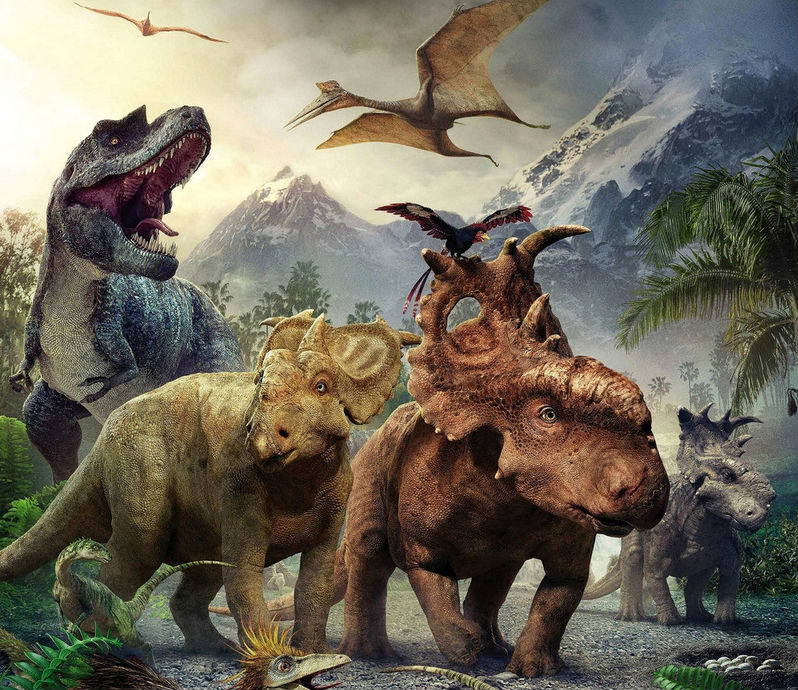Tyrannosaurus rex, though, lives in an entirely different world.
而霸王龙,却生活在截然不同的世界中。
A male devours a Triceratops carcass. Those powerful jaws smash into the meat of the animal.
一只雄龙正在吞食三角龙的尸体。强有力的爪子刺入猎物的肌肉中。
Those gigantic teeth pierce down through flesh. These well-rooted teeth are there to break into the bones.
这些巨齿刺穿肉块。这些坚固的牙齿足可以咬碎骨头。
Scavenging keeps T. Rex alive. Maintaining strength is essential. His chicks are depending on him.
吃腐肉能让霸王龙活下去。保持力量至关重要。它的孩子们还指着它呢。
Left alone, they're as vulnerable as a clutch of baby Sauroposeidon.
它们无人看管,就像年幼的波塞东龙一样脆弱。
And a Quetzalcoatlus has a voracious appetite.
而披羽蛇翼龙的食量很大。
Soaring at 3000 meters, a sense of smell is useless.
在三千米高空,嗅觉是没用的。

This flying reptile relies on its incredible eyesight to scan for vulnerable infants on the ground.
这类飞行爬行动物靠的是惊人的视觉从空中扫描地面上的猎物。
It could make the difference between a meal and no meal.
它能够区别出目标是否是猎物。
It zeroes in on a target. A meter-long baby T. Rex appears on the radar.
它对焦在一个目标上。一米长的霸王龙幼崽出现在雷达上。
It's gonna need to have fairly good distance vision be able to see just generally where it's going and targets on the ground.
它需要一个良好的远距离视觉,才能看清地面的大致情况并锁定地面目标。
They would have been just about the right size to be a snack for Quetzalcoatlus.
它们的大小正好适合做披羽蛇翼龙的小吃。
Luckily, just as this massive flying reptile approaches the nest, the male senses trouble.
幸运的是,正当这个巨型爬行类动物逼近巢穴时,雄龙察觉到了危险。
His ultra-sensitive olfactory lobes pick up the distinctive scent of Quetzalcoatlus.
他极度敏锐的嗅觉脑叶察觉到披羽蛇翼龙的特殊气味。
This triggers a rush of chemicals to the brain, and an immediate decision to return to the nest.
这将导致一股化学脉冲通往大脑传达"迅速回巢"的信息。
But Quetzalcoatlus are fast. And it only takes a split second to launch their 180-kilo body into the sky.
但是披羽蛇翼龙动作敏捷。眨眼间,一百八十公斤的它就能一飞冲天。
The other chicks might just make it for another generation.
其它的幼龙也许可以生存到下一代。


